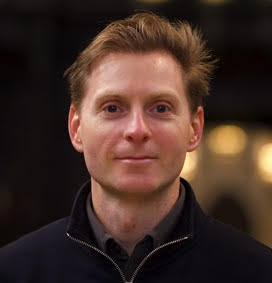As the oldest university in the English-speaking world, Oxford is a unique and historic institution. There is no clear date of foundation, but teaching existed at Oxford in some form in 1096 and developed rapidly from 1167, when Henry II banned English students from attending the University of Paris. (1)
From its early days, Oxford was a center for lively controversy, with scholars involved in religious and political disputes. John Wyclif campaigned for a Bible in the vernacular in the 14th-century, against the wishes of the papacy. In 1530, Henry VIII forced the University to accept his divorce from Catherine of Aragon, and during the Reformation in the 16th century, the Anglican churchmen Cranmer, Latimer and Ridley were tried for heresy and burnt at the stake in Oxford. (1)
Oxford continues a tradition as a place for world famous speakers, academics, and debates. This is a wonderful and rewarding experience for those eligible students who attend this unique community centered around the University.
But what about the rest of us? How can we learn from the best and pursue a lifetime of education while we must get on with our lives in our respective communities?
We are witnessing a transformation where the line between the University and the community are being blurred. And inversely from the history of Oxford where the community was built around the University, the modern University is being built around the community.
As digital learning becomes more accessible and provides students with access to the greatest teachers and curriculum at their convenience, the modern university will be encouraged to enhance this digital learning with real-world application and experience. Integration through university and employer partnerships including internships and externships will provide great value for both sides.
How communities will assist with education
Communities will provide relevant work experience and exposure to one’s desired career path. This leads to skills training across all disciplines including those studying welding, accounting, medicine, or theater. Students are able to form relationships with potential employers, validate their choice of career, and incorporate things being taught in the classroom with learning in the workroom. The transition from school to work can become seamless and gained work experience should become more rewarding than simply getting a ‘job’ to earn while in school.
How education will assist with communities
Education will provide the community with an able-bodied work force that is eager to learn and apply the things they are learning in real time. These students can serve as a bridge between the latest theories and research and how vocations are being practiced. Education will become a more valued resource to local businesses as they will find it advantageous to challenge the schools and students to help solve real needs and challenges faced in the community. This includes utilizing the tremendous resources that are available within education to help solve local challenges and workplace needs.
Conclusion
With digital learning it will become more commonplace for campuses to be spread or intermixed throughout the community. Perhaps the physical boundaries of the community and the education will become one and the same. This will certainly further the benefits that each can provide to the other while encouraging lifelong learning and education for all.
Communities thrive when they include and integrate a student population. And education will also thrive as they include the community in their efforts. This can result in significant changes to the built environment with classrooms, dorm rooms, office space, and apartments each evolving with the changes. After all, Education requires space during the day, whereas the community and housing requires evening space. What has been ‘single-use’ buildings and rooms can become ‘multi-use’ buildings and rooms for increased 24/7 utilization.
The built environment is merging the physical and the digital at the same time that education is moving towards digital learning. This should have profound yet positive changes towards our communities and education. This way we can learn from the best and pursue a lifetime of education while we get on with our lives in our respective communities.
References:


















